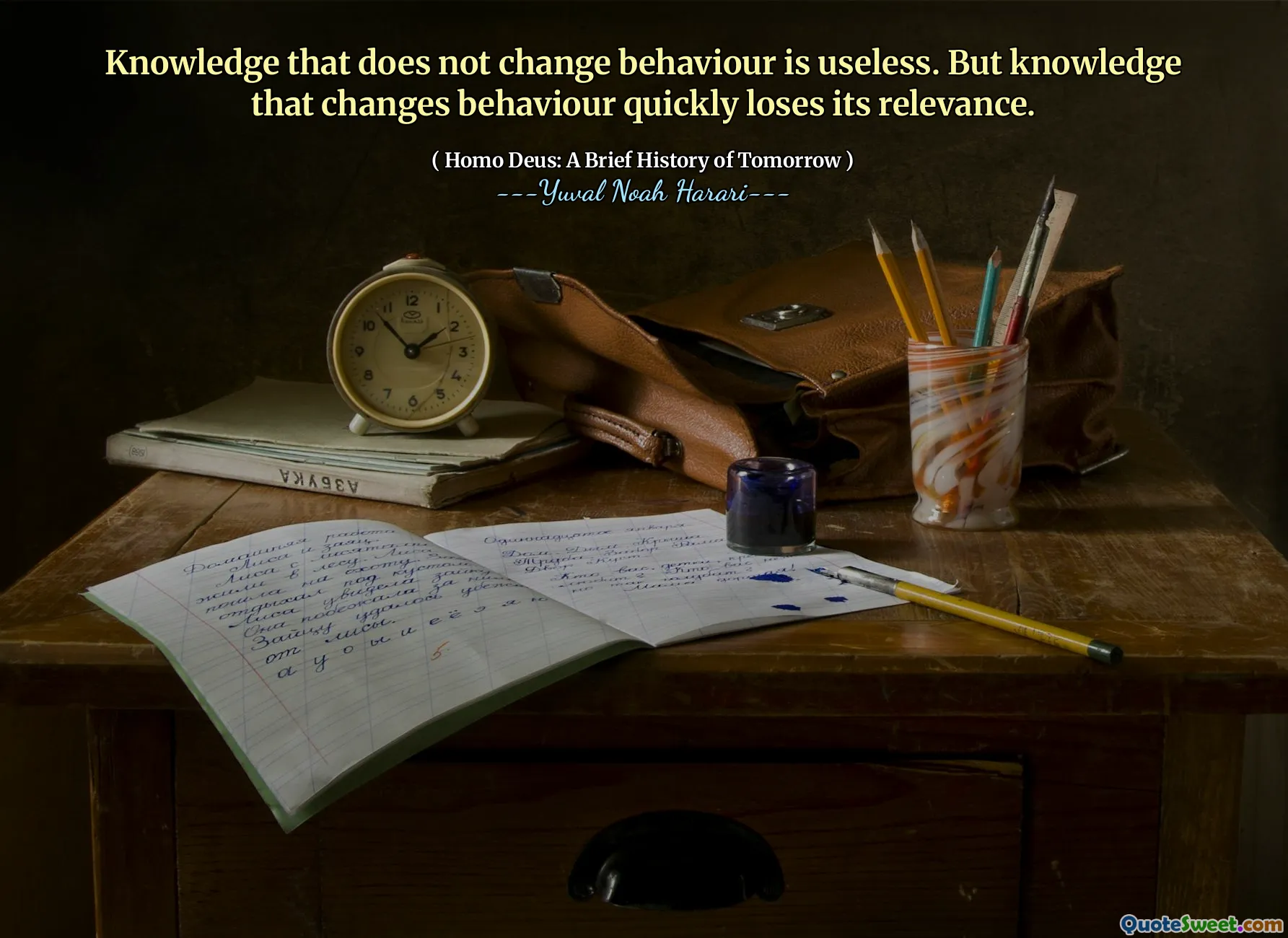
Knowledge that does not change behaviour is useless. But knowledge that changes behaviour quickly loses its relevance.
This quote compellingly encapsulates the transient and practical essence of knowledge as articulated in Yuval Noah Harari's "Homo Deus: A Brief History of Tomorrow." The duality presented highlights an intriguing paradox: knowledge must serve a functional purpose—it must induce change in behavior to hold value, yet once this behavioral change is assimilated, the same knowledge can become obsolete or less impactful. This perspective challenges traditional views of knowledge as a static treasure trove and instead posits knowledge as a dynamic tool intertwined with human actions and societal evolution.
In essence, knowledge is not merely about accumulation; it's about transformation. If knowledge remains purely theoretical and does not manifest in altered behavior, its utility is questioned. This infers that the real worth of knowledge is activated when it influences decision-making, habits, or worldview. However, the rapid decline in relevance of knowledge that shapes behavior suggests an accelerating pace of change in our world, where what is relevant today might be outdated tomorrow. This temporal nature of knowledge compels individuals and societies to continuously adapt, learn anew, and question established truths.
Furthermore, the quote invites contemplation about the impermanence of what we consider useful knowledge. As humans progress, the behaviors we adopt evolve, and with them, the underpinning knowledge morphs or gets replaced. It reflects on our cognitive flexibility and the necessity to embrace change, serving as a reminder that stagnation is antithetical to growth. Harari subtly urges us to value knowledge as a catalyst, a fleeting yet powerful force that must be harnessed progressively to navigate the future intelligently.
Ultimately, this insight underlines the fluid relationship between knowledge, behavior, and relevance, prompting us to rethink how we approach learning and application in an ever-changing world.






